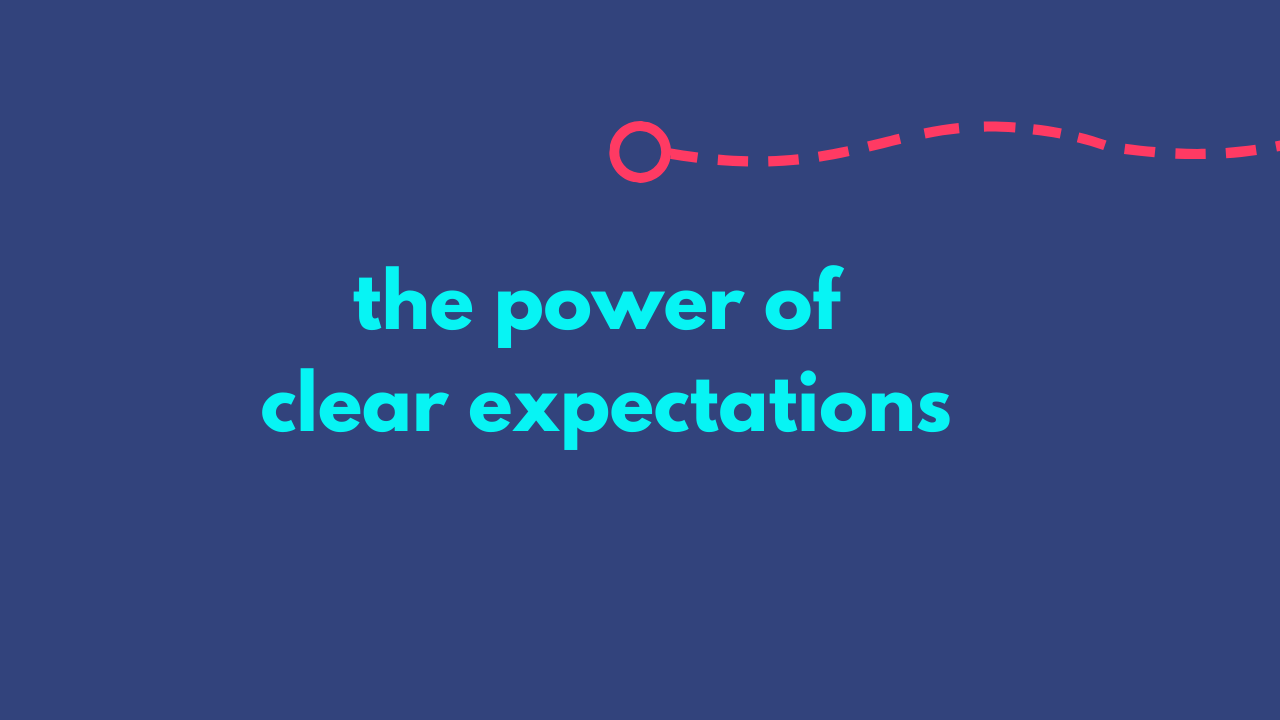Whether we admit it or not, there’s one question that we all ask ourselves as managers…
“Why can’t my team members read my mind?”
How many times have you ended up in a situation where you have found your expectations aren’t being met, despite feeling like you’ve explained them enough?
We often end up in a situation where we feel like we’ve said what we need, and even if we haven’t, we feel that the things being missed are things that our team members should just know. We feel like they’re missing very obvious things, and it leaves us frustrated and asking, “Why can’t they just read my mind?”
The answer to this question is, well…they can read our mind when we’ve set clear expectations.
Listen on Apple | Listen on Google | Listen on Spotify
Where’s Our Clone?
Another thing we often think to ourselves (whether we admit it or not) is, “I wish I had a second me on the team.”
We know we want to bring in different perspectives. We know we want different ideas. We know that’s what fuels innovation, but even so…we still wish we could get our hands on a clone of us so we could get a little more free time for ourselves.
While cloning technology is unfortunately a ways off, there actually is a way we can get this…but we first have to set expectations.
This is why setting expectations is such a huge piece of the Ops Playbook, especially in the implementation phase.
When I do the Ops Playbook with a client, we do a four-hour deep dive where we figure out where we are today and where we want to get to across these six different dimensions that I talk about. Once we lay that out, I can then create the playbook, but the meat is really in the implementation, which is when I get in there with your team and bring all this to life.
That phase is when things can get murky if we aren’t careful, so we need to set those clear expectations right away. But setting expectations can be a little messy if we don’t know how to do it in the simplest way we can. Here are two major roadblocks that often keep us from setting expectations right away…
Miscommunication
The most common issue with trying to set expectations is miscommunication.
This happens when you think you said one thing, team members think you said something else, and it ends up becoming a roadblock.
Things start taking way, way longer than you wanted. People are prioritizing what they thought was important, and you actually wanted them to prioritize something else. You’re sending things in emails, and your team thought they were supposed to be monitoring Slack…etcetera, etcetera, etcetera.
So many little weird, annoying, nuance-level things can start to go wrong when we don’t have expectations because it literally becomes a free-for-all. For example, this often manifests in an issue with work tracking.
If we don’t set expectations around how long tasks should take and have a frank conversation with our team members about what that looks like in practice, we can end up thinking, “They said that task takes an hour. I think it should take five minutes. They must not be working. They must be inflating their timesheets.”
We start making assumptions that likely aren’t the case because we’re thinking they can read our minds, even if we don’t consciously realize that’s what we’re thinking.
If we look at a task and think that should be an hour-long thing, but we see our team members say it took four hours or two days, that miscommunication can start to create some frustration and some tension. But if we had set expectations and established some kind of norm around that first, we wouldn’t have that issue.
So even if you think you’ve spelled it out enough, when it comes to setting expectations, the more you can lay it out there, the better.

Micromanagement
The next thing I want to discuss around setting expectations is this idea that setting expectations can be perceived as micromanaging.
Let me give an example. I was working with a client once, and she felt that her team members were doing great work. Clients were super happy, they loved the service delivery, and there were no issues there. But between client meetings, she’d glance over and see folks standing around looking at their phones or chit-chatting with each other.
That frustrated her, because she knew there was a lot more work that actually had to get done, but she didn’t know what to say. She didn’t want to micromanage her staff, but she didn’t love watching people standing around while clients were walking through the door.
If you ask me, this is a great opportunity to set some expectations for when you take breaks and what that looks like. You can also set expectations around how your team uses idle time between appointments.
We ended up creating a checklist so that we could set clear expectations for what to do when you have idle time, and the awesome thing was that people were actually really excited to have that checklist.
They didn’t think it was micromanaging, because we didn’t go in there and criticize and accuse them of not doing their jobs. We just said, “Hey. We want to make sure that everybody’s super clear and feels set up for success. Here’s a list of some of the stuff that’s really important to be focusing on during idle time.”
And you know what? People did it.
I understand the worry of being perceived as a micromanager. But that usually only happens when we address it from a place of frustration, present it as an accusation, or present those expectations while giving feedback on their performance, even though we haven’t actually made them aware of those expectations beforehand.
When it comes to feedback, Step 0 is always expectation-setting, because you can’t give feedback if you didn’t give them expectations to fulfill.
Once we’ve set expectations, we can then reward and appreciate and give recognition based on that. Because the awesome thing about setting expectations is that once we have that standard, we then know when someone goes above and beyond.
Setting expectations is a really important piece to being able to assess someone’s performance, because once we’ve identified what the baseline is, we can then see if they’ve over-delivered.
The Other Side of Setting Expectations
So, what’s on the other side of setting expectations?
Once we’re done setting expectations, we can finally start scaling without getting mired in micromanaging, because the things that were in our minds that were really important are now written on paper. Everybody will finally get what they need to get, and they’ll be able to run with it.
So that’s what you get when you set clear expectations: you get to relax and find some peace in knowing that you don’t have to explain yourself to death in order to get the results you want.
This doesn’t just help you, either; it’s also amazing for your team. It will save them a ton of stress and uncertainty, because people want to know what success looks like. They want to know they’re doing a good job. And that’s what expectations tell them. They now have something to measure their performance against!
WORK WITH LIA:
Want a checklist of things you can do THIS month to become a better manager? Check out my Thriving Team Scorecard for a list of quick actions you can take right away with your team: liagarvin.com/scorecard
Book a FREE scaling strategy consultation with yours truly: calendly.com/liagarvin/scaleup-strategy?back=1&month=2023-08
Join the MANAGING MADE SIMPLE HUB, a membership community for team leaders and small business owners. This is your one-stop shop for building effective, motivated, & profitable teams: https://www.liagarvin.com/hub
CONNECT WITH LIA:
Website: https://www.liagarvin.com/
Instagram: https://www.instagram.com/lia.garvin/




